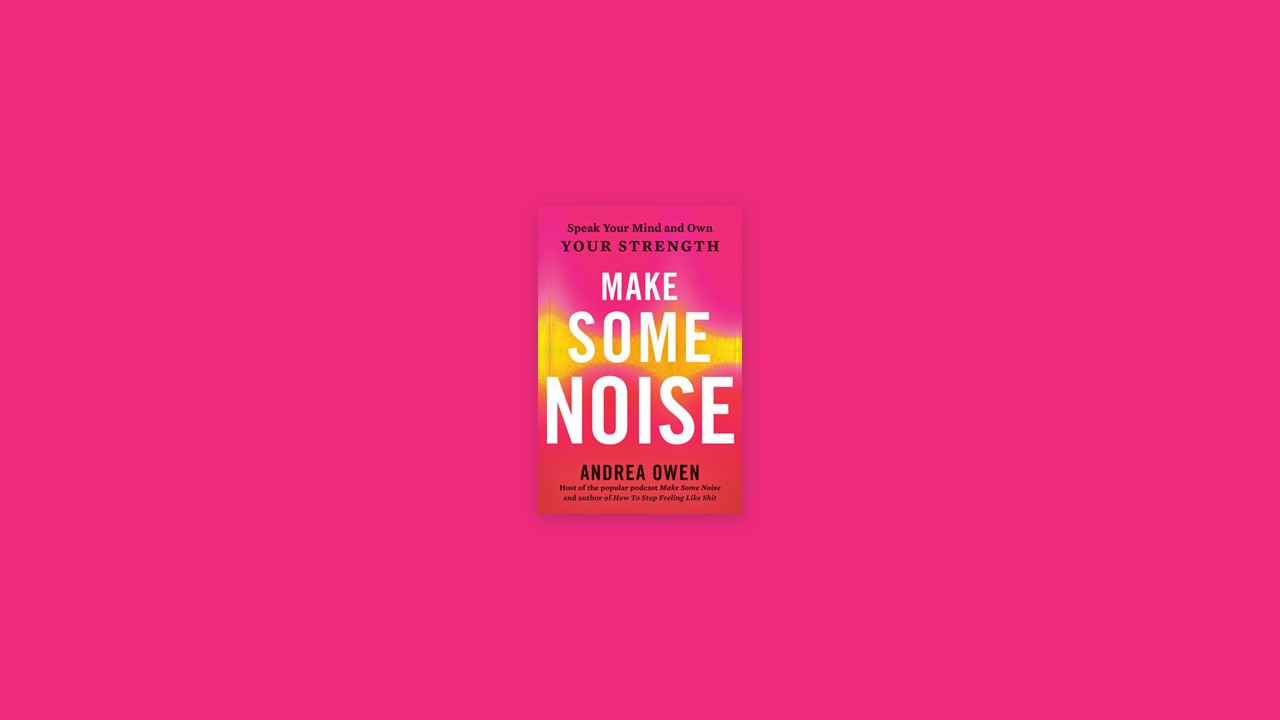Start Taking Up Some Damn Space
Both shining bright and taking up space can feel like changing your whole identity.
Think about any regrets you have in your life. Were they about playing small and not taking up space?
Look at where you hold back in taking up space with your body, your appearance, your voice, and your emotions. It’s not about becoming someone different than you are in order to take up more space, it’s about getting to know your authentic self, who might be afraid of the consequences of taking up space.
GET CURIOUS: Now that you’ve identified some places in your life where you try to take up as little space as possible, ask yourself, Why do you feel the need to do this? Where and from whom did you hear messaging about this? What was modeled for you growing up? Do you have judgments about women who take up lots of space, and if so, what are they?
What is it costing you to not take up more space? What are your fears if you do take up space?
SELF-COMPASSION: As you start to notice and get curious about your possible lack of taking up space, you may find your inner critic chiming in about wasted time, what you “should” be doing, and other soul beatings. This is about your growth, and awareness can sometimes be the hardest part. If you’re feeling down on yourself about this, here’s your reminder: The great news is that now you know. Now you know, so you can use the tools you have (and many more to come) to take up some damn space in this world because we need more of you!
“Taking up space” might not look the same to you as it does to the next woman and the woman after her. You get to define that. As long as it feels expansive and badass to you, you’re on the right track.
Start Shining Too Bright
Notice where you find yourself holding back, whether it’s with your opinions, your success, your appearance, your anything. Pay attention and acknowledge the stories or narratives that you’ve made up to be true over the course of your life.
Does this happen at work? If so, be specific. Does this happen in your romantic relationships either past or present? What about with your appearance? More specifically, do you find yourself holding back or hiding when it comes to your accomplishments, your opinions, or anything else? Get it all out on paper.
Remember, this step is about observing only, not necessarily coming to any grand conclusions.
GET CURIOUS: Where do you think these habits came from? What was the message or even the unsaid “rules” from your family of origin? If you find something there, where do you think your parents came up with these rules?
What about your past relationships? Did you ever date someone who tried to make you wrong for shining bright? Did this happen in your friendships, whether it was your own doing or someone else’s?
Think about your conditioning in general. Now that you’ve poked around in your past, think about other things, like the media you consumed. What did you think of female TV or movie characters who did in fact shine? Did you admire them? Fear them? Judge them? Nothing is wrong with any of your answers to any of these questions; this is all helpful for you in getting to the bottom of why you think and behave the way you do.
SELF-COMPASSION: As you start to realize where you’ve held yourself back, have compassion for yourself. You might uncover a whole mountain of stories that don’t feel good. You’re not alone here—many, if not most, women have been conditioned to create stories that holding back will keep them safe.
You’re not wrong for believing these things, and as a reminder, you’ve been conditioned to believe shining too bright is not okay, and neither is outshining others. This is about unlearning those beliefs to adopt new ones.
Start Asking for Everything You Want
Part of the unlearning around asking for everything you want is moving away from believing that asking for what you want is wrong. Pay attention if you find yourself not wanting to send your food back at a restaurant even though they put a rare steak in front of you and you’re vegan. Notice when you procrastinate on asking for a raise even though you know a guy in your department with less experience makes more money than you do.
If you’re not ready to take action on any of these things, start making a list on paper or on your phone of all the things you want but you’re currently unwilling to ask for, and what it’s actually costing you. Maybe it’s not always costing money, but rather costing you your self-confidence, self-esteem, and self-trust, and it’s going against your values. Once you see all the ways you aren’t asking for what you want, you can’t unsee it, and that’s the point.
GET CURIOUS: Before reading this, what were your assumptions about women who ask for everything they want? What did you think of them? Are you judgmental or do you envy them? If you have judgments, what are they, specifically? If you admire women who do ask for what they want, what is it that they do that you think you can’t emulate? Is there anything about them you think you could also do?
Do you think asking for what you want is something you could, would, or should never do? If not, why not?
If you are afraid to ask for what you want, what exactly are you afraid of? Did someone tell you that girls were supposed to behave a certain way when it came to asking or even wanting things? What do you remember about that?
These questions might take time to sit with and answer. Curiosity is best not rushed, but is the key to clarity so you can start to unravel and unlearn old patterns and stories and relearn new ones that get you on a path to putting yourself first.
SELF-COMPASSION: If you’re suddenly coming to the realization that there’ve been a million things you’ve never asked for and you’re beating yourself up for it, you can cut that out right now. Most likely, you’ve been trained to never ask for more than what you need and/or only ask for what you think you deserve, and sometimes not even that. You’re having to unravel decades of conditioning, and it won’t happen overnight.
If you find you’re being hard on yourself about this, try this mantra: “I am now aware, so now I can work on changing my thoughts. I deserve to be able to ask for what I want.”
Compassion, like most things, is a tool that must be utilized regularly and consistently for it to work. It’s key to “staying on task” in place of letting your negative self-talk get in the driver’s seat of your processing and learning.
Start Accepting Challenges as Life Invitations
First, pay attention to where you are blaming others for your challenges, problems, and struggles, and if you’re blaming yourself. If you stay in blame, you stay stuck. You may have made bad choices and people may have done shitty things to you, but it’s over and you can’t go back and change things. Understand that the only place of control you have in your challenging situation is the perspective you take in it. Do you want it to solely be a hard thing that happened, or do you want it to be an invitation for a better life?
GET CURIOUS: How did your parents or caregivers shape you when it came to facing challenges? Did they crumble or react drastically? Or never talk about them? Did you have a single parent who against all odds was successful? Connecting the dots may be helpful for you to both have compassion for yourself and to understand that you are doing what you learned and seeing the new story you want to create in terms of life struggles. If you’re resistant to answering the questions I posed in this chapter, ask yourself where that resistance is coming from. If you’re used to staying in the struggle, maybe you get lots of attention there, or it’s become a habit, so no wonder you’ve stayed. Your curiosity might then lead to asking yourself what’s at stake if you continue to stay stuck in your struggle.
SELF-COMPASSION: You may have it down to a science when it comes to beating yourself up for past mistakes. It’s what you’re used to, and you may even be convinced that’s the way to not make the same mistakes again. That your inner critic is your motivator—the one who keeps you in check.
Start Riding It Out and Practicing Resilience
You might be in a difficult situation right now, or you have very likely been in one in the past. If you’re in one right now, think about how you’re reacting to it. Do you surrender to it
or do you fight it tooth and nail? Is there a particular way you deal with things, for instance stay in denial at first or get angry, then try to control other people in order to feel better? The point is not to label yourself as wrong for how you handle hard struggles, but to pay attention to how you handle them.
GET CURIOUS: Do you judge yourself for hard times and struggles you’ve had in the past? If so, why? Do you feel that struggles are meant to be kept to yourself or to get support with? If you feel the need to keep them to yourself, why do you think it’s okay for others to ask for help but not you? When you think of the hardest thing you’ve ever faced, how do you think it’s made you a better/stronger/wiser person?
SELF-COMPASSION: Compassion is going to be your best ally here and, at the same time, might be a real challenge to put into action when you’re feeling especially low. Without compassion, you’ll stay stuck at best, and at worst, go backward. Remember: Not only have you survived all of your challenging struggles thus far, but they’ve shaped and prepared you for further ones you’ll face now and in the future. With self-compassion—which is a key component of resilience—you’ll be able to make your way through your difficult time with more grace and ease.


